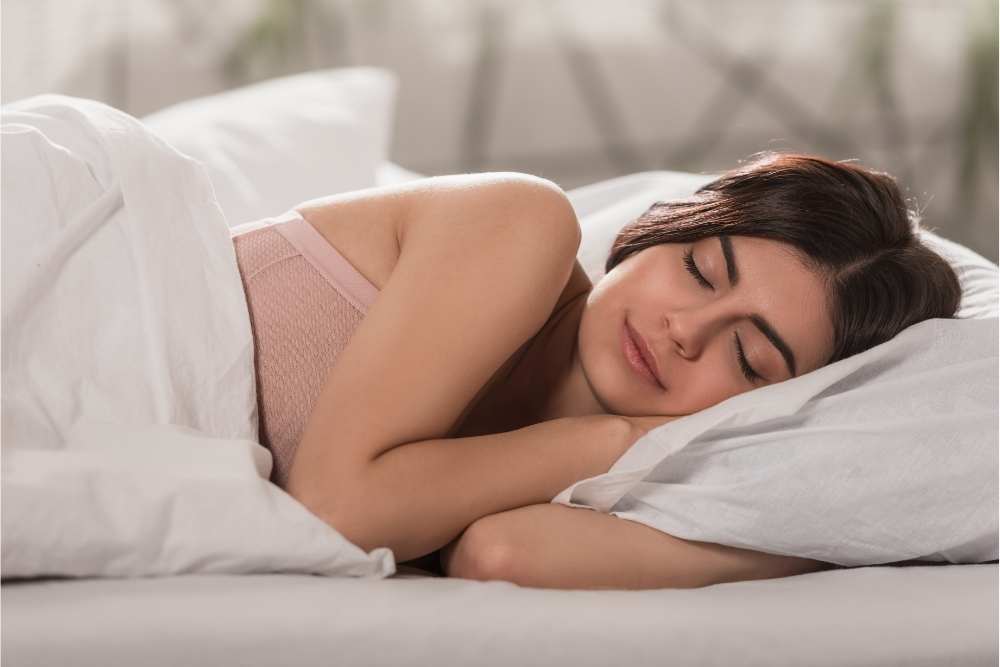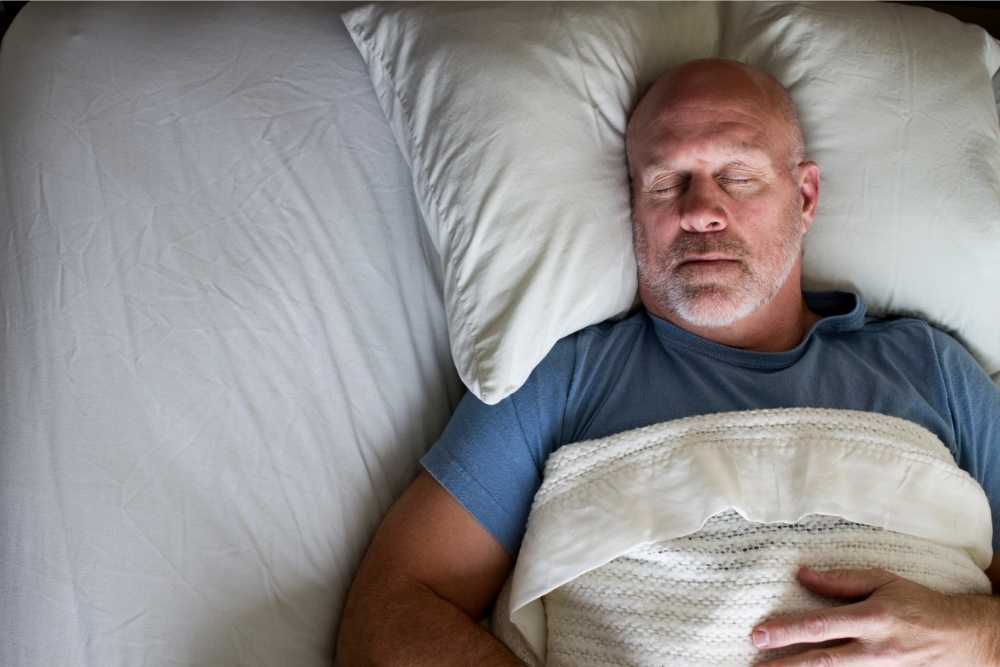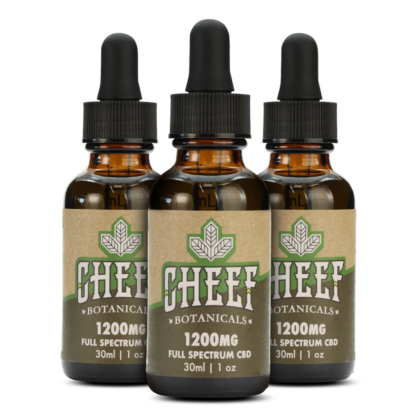CBD vs THC for Sleep: Which Cannabinoid Works Best for More Rest?
We’ve all been there. The racing thoughts, the tossing, the turning, the complete unwillingness of your body to get tired enough for a good night’s rest. Many turn to some sort of sleep aid, such as over-the-counter medication. But sometimes those substances can lead to problems. With the legalization of hemp, THC and CBD are increasingly being recognized as potential sleep assistants. But which one is right for you? When it comes to CBD vs THC for sleep, the pros and cons of each should be considered, as well as their effects when combined.
The world of cannabidiol (CBD), and Δ-9-tetrahydrocannabinol (THC) can be a confusing one even without snoozing involved, and we’re here to help sort it out! So grab your comfiest pillow, hit the hay, and make sure you set your alarm! By the end of this article, you’ll learn CBD Facts and be able to choose the cannabinoid that best helps you fall asleep!
Pros and Cons of THC for Sleep
THC and CBD are both cannabinoids that come from cannabis. They share many similar benefits, however, they also differ in some important ways!
To begin, we should address the association most people have with THC. The psychoactive, or “high” feelings that tetrahydrocannabinol induces can be a pro to some and a con to others. This cannabinoid can act as a heavy sedative. Though, some might feel their sleepiness is counterbalanced by the psychotropic properties.
Pros of THC for Sleep
Many advocates swear by the strong sedative properties of tetrahydrocannabinol with research available to support their claims. A 2004 study reports that 15mg of tetrahydrocannabinol caused subjects to say they felt “increased sleepiness,” and fell asleep faster.
Tetrahydrocannabinol interacts with receptors in our brains in such a way that it greatly affects the sleep/wake cycle, but it can also get the user high. If you are okay with the psychoactive effects, THC might help you get to bed faster.
Some people may be tired enough to sleep, but suffer from nightmares. These individuals might resist the urge to go to bed. They might frequently wake up throughout the night, or feel exhausted even after waking. THC consumption may result in little to no dreaming, which could come as a benefit to those who have bad dreams.
Cons of THC for Sleep
You may have heard those who consume THC claim their memory has been affected by the cannabinoid. They may not just be blowing smoke, as studies suggest that the receptors the cannabinoid attaches to could be involved in memory formation.
Some consumers believe that THC is not addictive. Yet they also seem to be unable to go a few hours without using some form of it. These users may have formed a dependency on tetrahydrocannabinol. Some studies indicate that THC dependency is twice that of any other illicit psychoactive substance. People may build up a tolerance to tetrahydrocannabinol, needing increasing dosages for it to work.
Additionally, the intoxicating properties of tetrahydrocannabinol may not be suitable for some people. This intoxication might hinder one’s ability to think clearly or perform actions that require conscious thought. The cannabinoid causes some users to report paranoia or anxiety as a side effect.
Pros and Cons of CBD for Sleep
While many use the terms cannabis, hemp, and marijuana interchangeably, the three are not mutually exclusive. Hemp might still be able to assist sleep without inducing psychoactive effects. The genus cannabis encapsulates both marijuana and hemp. Marijuana is associated with higher THC levels, while hemp generally contains less tetrahydrocannabinol and more of a different cannabinoid that sleep-seekers might be able to utilize: cannabidiol, or CBD.
Related: Cannabis: Marijuana vs Hemp – Do You Know the Difference?
Pros of CBD for Sleep
CBD is non-intoxicating. which is a quality that draws many to it instead of THC. Moreover, some people with disruptive schedules or environments may wake frequently, wanting to quickly fall back asleep without feeling intoxicated or groggy when they wake.
CBD might also be able to assist people with soreness or discomfort that keeps them from falling asleep. Functions in our body such as sleep, appetite, pain, and immune system response are all regulated by the endocannabinoid system (ECS). The ECS is in all of our bodies, and cannabidiol interacts with this system to promote soothing and calming effects. For people who suffer from extreme tiredness or sleep-hindering discomfort, an effective ECS can come as a big help.
Extreme tiredness may seem like the opposite of a sleep problem, but our nighttime schedules are often as important as the amount of rest we’re getting. Eight hours of sleep is healthy but could be problematic if the exhaustion hits someone at an inopportune time. Research on whether or not CBD induces alertness has helped us better understand the relationship between our endocannabinoid system and sleep. Wakefulness can combat excessive sleepiness and lead to a healthier schedule.
CBD for Sleep – Dosage Strength
Light doses of CBD causes some to report increased alertness. But this doesn’t mean it can only be used in your morning coffee. Studies have been done on higher dosages of cannabidiol being used as a sedative. Consumers have said they feel drowsy after taking higher amounts of CBD before bed. Cheef Botanicals recommends between 0.25 mg (a regular dose) and 0.5 mg (a strong dose) of cannabidiol per pound of body weight.
Cannabidiol also won’t leave you groggy in the morning, as THC might. Rather, the effects of CBD are often reported to be relaxing and tranquil. Additional research has been done on CBD modulating discomfort or showing therapeutic potential. If physical or mental anguish is what’s keeping you up at night, CBD may be an option!
Cons of CBD for Sleep
Potential side effects of cannabidiol are dry mouth, diarrhea, and reduced appetite. It can also increase the level of certain medications or blood thinners in your blood. Though, it’s no different from the way grapefruit juice can. Both CBD and grapefruit bind to enzymes inside of us that partially deactivate certain types of medications. When that enzyme is already bound, the drug stays fully activated. This then causes the level of medication in your blood to rise.
Another risk of CBD is the rules and regulations that govern it. CBD is legal within the US. But, besides that, there is a lack of regulations surrounding it. Unfortunately, this has resulted in some shady companies manufacturing faulty or fake products. Although this is not exactly a con of CBD for sleep, it is a flaw within the industry. Be sure to keep an eye out for third-party, lab-tested certificates of analysis that will either back up or disprove the label on a CBD product. See examples of our certificates of analysis here.
CBD vs THC for Sleep: Which is Better?
Are you tired of looking for an alternative to promote sleep? The world of cannabis might just have the solution you need. CBD and THC may improve sleep quality, schedules, and latency. Latency refers to the speed at which someone falls asleep after getting into bed. However, tetrahydrocannabinol may lead to intoxicating effects, grogginess, dependency, and needing more of the cannabinoid as their body builds up a tolerance, CBD is the better overall cannabinoid for sleep.
For those who do choose to use THC for sleep assistance? Keep in mind that many users report a point when the cannabinoid crosses from sedative to disruptive. These reports are supported by a 2016 study that claimed daily THC users and non-users described higher insomnia levels than those who take THC at a moderate rate. Though, the idea of only consuming a happy medium of tetrahydrocannabinol in order to feel drowsy conflicts with the tolerance that consumers often say they build up. This is another reason that CBD is the better choice!
Using CBD and THC Together for Sleep
So if THC can induce sleep, and CBD can assist our sleep schedule, why not just take both? This is certainly an option! Though you should keep in mind the pros and cons of CBD vs THC for sleep.
Another bonus of this combination is the entourage effect. This effect refers to the synergy between THC, CBD, and other cannabis compounds when used at the same time. This results in greater efficacy when taken together. Full-spectrum CBD contains trace amounts of THC that won’t induce intoxication or psychoactive effects. You’ll want to keep an eye out for these products.
Broad-spectrum CBD is identical to full-spectrum cannabidiol except in that it doesn’t contain THC. Everyone has their own unique preferences, endocannabinoid systems, and sleep schedules. If combining the cannabinoids interests you? Try both full-spectrum and broad-spectrum CBD to see what works best for you.
Sleeping Pills vs CBD
The sheer familiarity of sleeping pills can be more appealing to some concerned with the stigma of cannabis or the novelty of CBD. It’s relatively new as a product, and often conflated with tetrahydrocannabinol by those who assume “cannabis” means “marijuana.” This is not the case, as CBD is a separate cannabinoid from THC, and comes with its own potential benefits and side effects.
Similarly, sleeping pills come with their own advantages and disadvantages. Over-the-counter pills are a convenient, cost-effective way for those who need help getting to bed. Prescription pills are even stronger and can help more serious insomniacs get to sleep and stay asleep for a deep night’s rest.
Some ramifications of these pills include dry mouth, foggy memory, dizziness, itching, swelling, hives, and addiction. In 2011, over 30,000 individuals were hospitalized due to the nonmedical use of Ambien, a sleeping pill. Do not mix alcohol with sleeping pills, as overdoses on this type of medication are much higher when alcohol is involved.
Final Thoughts – CBD vs THC for Sleep
Of the many cannabinoids cannabis yields, two of them are enjoying the spotlight: cannabidiol and tetrahydrocannabinol. Research into these compounds offers new possible uses every year. For many, an exciting potential application for CBD is a means to a good night’s sleep!
Non-addictive, non-intoxicating, and soothing, CBD can help those looking for relief or a better sleep cycle. The effects of cannabis in any form might not affect everyone’s body and mind equally. Ask your doctor, experiment, and find what works best for you when it comes to weighing out CBD vs THC for sleep.






